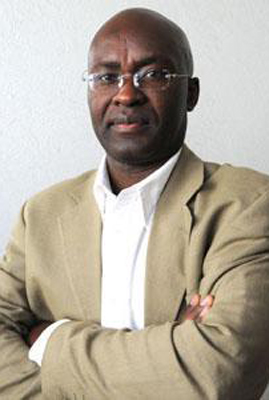The Power of Death
At last month's philosophy club we discussed some of the ideas of Cameroonian philosopher Achille Mbembe (pictured left), particularly with respect to necropower and necropolitics. These are ideas which are, I think, worth reflecting on and which may also be of interest to some of my students on the Ethics degree (the sociology students may also get some mileage out of it for essays and assignments). I'm uploading it here, as well as on the student site, because I thought it might inspire ideas and discussions amongst the half dozen people who read this blog. This waffle reflects more on descriptions and implications of his ideas rather than recommendations of how to improve the kinds of social problems he outlines.
Mbembe's ideas are built upon earlier philosophising from the French thinker
Michel Foucault (cunningly disguised as Uncle Fester, pictured right) who proposed ideas about biopower and biopolitics, the ways in which governments and those in authority seek to manage the lives of the people underneath them.
I've been meaning to record this for a few days, but this morning's funeral brings issues of death into focus - the economic and moral choices facing doctors with end-of-life care, the ways we mark and manage both our own and other people's passing, the sense of what death even means to different cultures, religions, and individuals. Anyway, I will leave this here and see if it sparks any discussion as to whether people agree or disagree, how they see these ideas being played out in this or other countries etc.
Mbembe's ideas are built upon earlier philosophising from the French thinker
Michel Foucault (cunningly disguised as Uncle Fester, pictured right) who proposed ideas about biopower and biopolitics, the ways in which governments and those in authority seek to manage the lives of the people underneath them.
I've been meaning to record this for a few days, but this morning's funeral brings issues of death into focus - the economic and moral choices facing doctors with end-of-life care, the ways we mark and manage both our own and other people's passing, the sense of what death even means to different cultures, religions, and individuals. Anyway, I will leave this here and see if it sparks any discussion as to whether people agree or disagree, how they see these ideas being played out in this or other countries etc.


Comments
Post a Comment